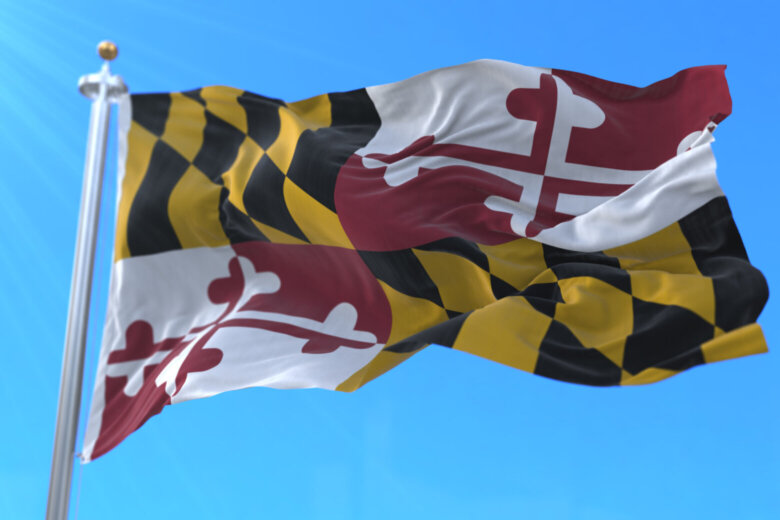This article was republished with permission from WTOP’s news partners at Maryland Matters. Sign up for Maryland Matters’ free email subscription today.

Rocio Terminio-Lopez said that when she hears people talking about migration, particularly politicians, she feels like “they don’t know what they’re talking about.”
Terminio-Lopez knows.
An immigrant from El Salvador, she struggled to get citizenship for herself while watching her brother, and then her husband, be deported. Now, as mayor of the Hispanic-majority Prince George’s County town of Brentwood, she sees her constituents fretting about their futures under a second Trump administration.
Terminio-Lopez is one of three Latina mayors leading neighboring, largely Hispanic, Prince George’s County towns where at least one-third of the residents are foreign born.
They live in a county, and a state, with generally immigrant-friendly laws. But the mayors still hear concerns about what will happen under a second term for President-elect Donald Trump, who has promised mass deportation of undocumented migrants. They calm constituents worried about the possibility of new waves of anti-immigrant rhetoric.
With Trump’s inauguration less than two months away, Maryland Matters talked with the mayors about the uncertainty and how they are working with one another, and local and state partners and nonprofits, to better inform and protect their residents.
Brentwood, population, 3,828: 51% Hispanic, 40% foreign born
Terminio-Lopez is cleared-eyed about the future. She has lived with the fear of deportation, and family separation.
She immigrated from El Salvador as a teenager in 1992, following her parents who had fled war, violence and persecution.
As a minor, she had no documents, and no protections beyond her mother’s asylum status. Over the next 15 years, she struggled to get a green card, which allowed her to work, and to gain U.S. citizenship, only to see her family trapped by an immigration system riddled with problems that worked against them.
“My brother was deported [during] the Trump administration,” she said. “My sister, who came in 1993, is still waiting for her green card.”
Terminio-Lopez said her misery grew in 2017, when her husband was sent back to El Salvador to wait for his green card, separating him from her and their four small children.
She was already mayor of Brentwood, first appointed to the post in the majority Hispanic town in 2o14 and later elected and reelected.
“I feel like when I hear people talking, especially some politicians about migration, they don’t know what they are talking about, and I ran for office to represent my community,” Terminio-Lopez said.
She said that, like her, many Brentwood Latino and foreign-born residents have jobs, own houses and pay taxes, yet, are uncertain about their future.
“You will find families where one parent is undocumented, the other has [legal] status, but still in a waiting period,” she said. “You will find kids born in this country, but waiting to be 21 so they can have a job, and petition for their parents.”
Terminio-Lopez continues to serve, having been elected, and re-elected as mayor.
“We need more people like [me] to represent their community,” she said. “The moment that you start to understand that representation matters, then the conversation will normalize.”
Colmar Manor, population 1,588: 58% Hispanic, 35% foreign born
Monica Casañas followed that advice. She saw little outreach to her majority Hispanic community in Colmar Manor, and no representation. She wanted to change that with a resolution to allow noncitizens to vote in municipal elections, a measure in place in 16 Maryland jurisdictions.
Terminio-Lopez, a mentor and friend, told her the way to accomplish that goal was to run for office. She campaigned for mayor on the single issue of winning the vote in local elections for noncitizens, and was elected in 2022.
Soon after that, the measure passed.
Born in Colombia to a Colombian mother and an American father, Casañas came to the United States for medical care in New York at age 4 and stayed. She’s been in the Washington area since the early 2000s, working in tenant organizing, and in adult literacy. She went on to get degrees the University of Maryland and American University, and currently works in the communications office at the D.C. Department of Health.
But, what keeps her up at night are the vulnerable residents in Colmar Manor, especially the Latinos and foreign-born and undocumented.
“I feel like I’ve built a strong enough connection with people that they know that they can trust me and I am going to do all that I can to connect people to resources they need,” she said.
Yet, she adds, “It’s not only the fear of mass deportation.
“It’s the fear of this inflamed anti-migrant rhetoric and behavior,”she said, reflecting on a recent incident at a local supermarket, where the Latino owner and workers were victims of harassment and hate speech.
Casañas said what she can do at this moment is to listen. “I think the strongest way to show people that you care for them is by talking to them one-on-one, breaking bread with them, showing them that you can connect them to the resources they need and can address their concerns,” she said.
Mount Rainier, population 8,333: 38% Hispanic, 33.8% foreign born
Celina Benitez, immigrated from El Salvador as a child. She was fortunate to come with legal documents.
She grew up in California, and as a teenager in 1994, marched against the Save our State Referendum, a ballot initiative that would go on to restrict immigrant access to health care and education.
That youthful activism propelled Benitez to study political science at the University of California. By 2014, she was living in Mount Rainier to be closer to family. A few years later she was a member of the city council and by 2021, had become its first Latina mayor.
She says since the November election, she has fielded multiple calls from residents who questioned whether there would be any changes to the city police department.
“That’s not the way it is going to be, absolutely not,” she said. “Obviously there are a lot of unknowns, but we are trying to prepare for that,” adding that Mount Rainier is a Certified Welcoming City, where every resident matters and where police agree not to join with Immigration and Customs Enforcement agents on immigration arrests, investigations or deportations.
“We very much know the fear is real, the feelings are valid,” Benitez said. “But no matter who you voted for or supported, we are working together to provide everything we can for all our residents, that they are safe.”
Benitez is encouraged by her elected Latina colleagues, and also the support from state and local government officials and nonprofits like CASA, the largest immigrant advocacy group in the region.
Maryland’s immigration friendly laws
In 2021, CASA successfullly advocated for the Dignity, not Detention Act, a series of measures signed into law that are similar to the Welcoming City and sanctuary mandates in Prince George’s County that prevent local police from cooperating with ICE. Also that year, the Maryland Driver Privacy Act became law to protect driver information from immigration authorities.
CASA Executive Director Gustavo Torres said the organization is gearing up for what comes next.
“CASA has developed a Trump-resistance plan ready to confront what he has to throw at us,” Torres said. “[It’s essential] to know your rights, understanding that if ICE comes to your homes or to your neighborhood, you are not going to open the doors [without] authorization from a judge directly.”
Torres said that as CASA moves forward, hand-in-hand, with the mayors of the frontline immigrant communities, “We will not be intimidated, nor will we be silent.
“Unity with these mayors will ensure that our future [is one] where justice and opportunity are available for all,” he said. “Our collective voice is unbreakable.”
Maryland Matters is part of States Newsroom, a nonprofit news network supported by grants and a coalition of donors as a 501c(3) public charity. Maryland Matters maintains editorial independence. Contact Editor Steve Crane for questions: editor@marylandmatters.org. Follow Maryland Matters on Facebook and X.








